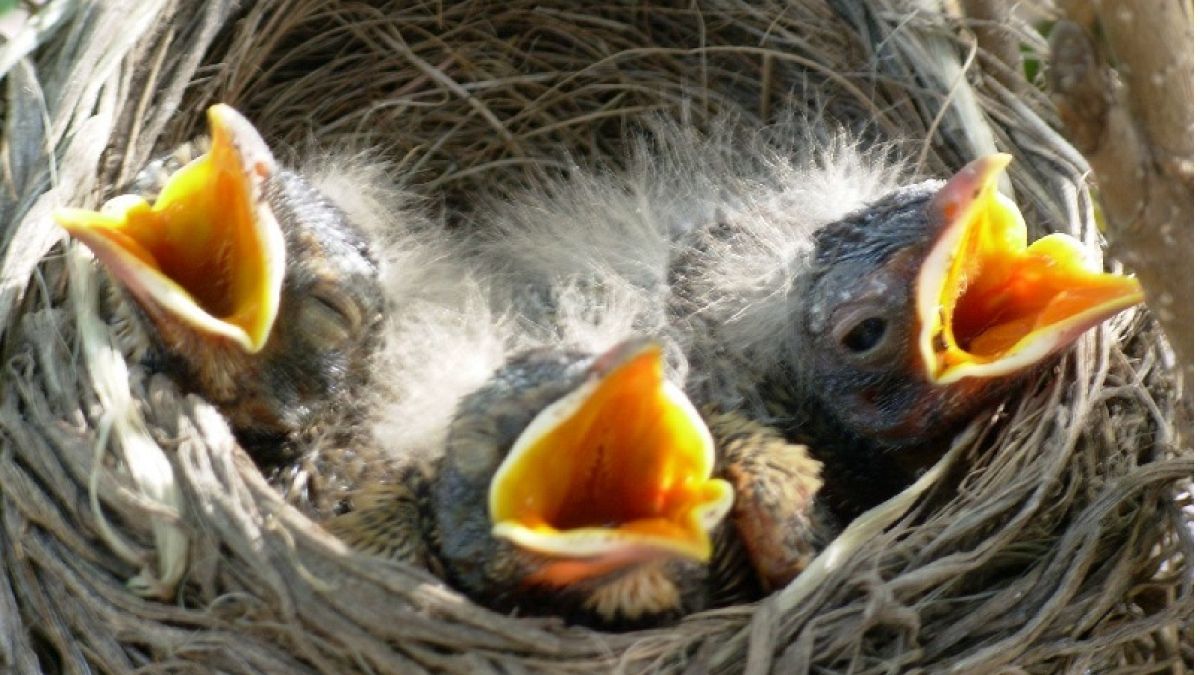The extreme temperatures and lack of rain is taking its toll on birds in Europe.
Birds are currently suffering from a lack of food because of the dry soil caused by Europe’s warmer than usual summer.
The Association for Bird and Wildlife Conservation in Zurich said: “Unfortunately, we have had extremely starved birds in the last few weeks; there are fewer insects”.
It confirmed that since August 1, as many as 37 emaciated birds have arrived at the sanctuary. In other years, there were less isolated cases.
"Due to the heat, worms and insects are moving deeper into the ground. To get them back to normal, a longer rain phase is needed because of the many dried plants. The birds are also struggling to find seeds and grains," the sanctuary told Euronews.
"Their natural water sources such as ponds have dried up and there are hardly any puddles left.
"Most people find them with limp wings in gardens and parks," the charity added.
Particularly affected are thrush species such as blackbirds, song thrush or juniper.
"They are so weak, that they cannot fly anymore. This also makes them easy prey for cats," they said. “We have noticed a striking tendency of starving birds on the nursing station this summer. This is usually the case in winter."
Some birds return to the sanctuary after a few days, others take few weeks before they're back on their feet. But if a bird has been unable to fly for many days, then food aid usually comes too late, they added.
"If a bird does not fly for a long time, they are attacked by parasites, which often transmit diseases, which additionally weakens the animal and usually leads to death."
A spokesperson from the bird charity RSPB told Euronews that it has been focusing on reactive measures during the UK heatwave, explaining that the public can assist during hotter periods by leaving a dish of water outside.
On a broader scale, there are various breeds of birds. Some are more robust than others and some require more food and water.
With climate change placing additional strain on bird populations, it is unclear whether or not they will be able to adapt if its effects continue to worsen.
Save our Sparrows volunteer, Lorraine Pooley told Euronews that a common species of bird, the House Sparrow, has suffered during this summer's heatwave.
"When the heatwave kicked in, the ground was hard again and the lack of food sources and water made gardens the most important sanctuaries for them to retreat to. So I urged people on Twitter to water and feed what they could afford to help them.
Fresh water daily has helped keep my thriving community buoyant. It’s my main focus for their survival. But the numbers are down on last year's figures."
The RSPB confirmed that the bird population has gradually declined over the years, although it is too soon to know if this summer’s heatwave will have an impact on the birds.
Temperatures soared across Europe this summer, reaching a record of 46 degrees Celcius in central Portugal last month. Wildfires tore through parts of Greece, Portugal, Spain, Ireland and even Sweden, raging as far north as the Arctic Circle.
